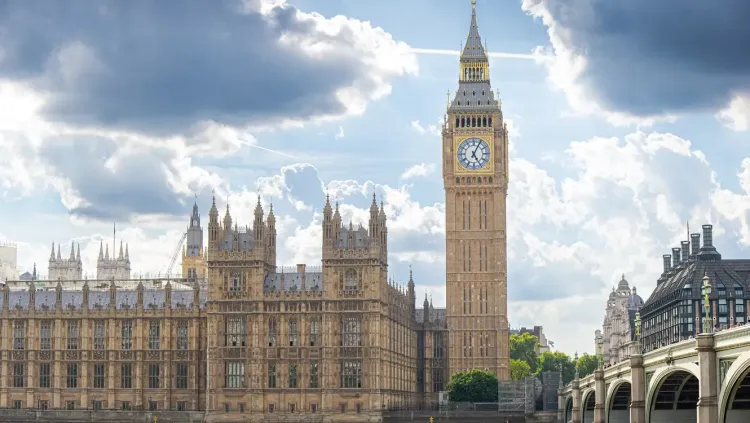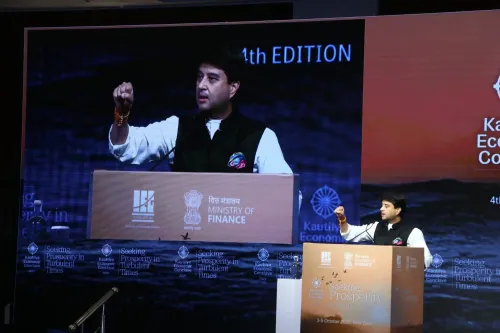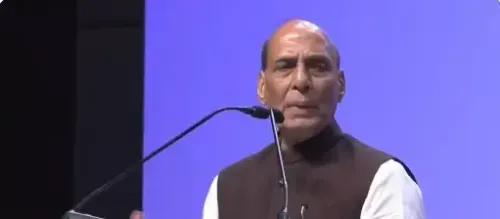What Does the Recall of Cadets and Writers Reveal About Colonial Rule in India?

Synopsis
Key Takeaways
- The 1809 debate showcases colonial corruption in appointments.
- Parliament's discussions reveal hypocrisy regarding justice.
- Indian perspectives were largely absent from the debate.
- The outcome illustrates the power dynamics of colonial rule.
- This moment highlights the enduring impact of imperialism on India.
New Delhi, Oct 5 (NationPress) In the esteemed chambers of the British House of Commons, a debate took place on a June day in 1809 that initially appeared to focus on a matter of administrative equity concerning the East India Company. The core question was whether to summon back young Cadets and Writers from India whose appointments were obtained through “corrupt or clandestine influence”.
For the British parliamentarians engaged in this discussion, it was a complicated matter of fairness, established norms, and the rightful exercise of authority. Yet, when viewed from the perspective of the Indian populace—those silent subjects of the empire whom these men were dispatched to govern—the debate transforms into a glaring and damning revelation of the very essence of colonial governance itself. It exposes a system not rooted in merit or a genuine commitment to just governance, but rather on a foundation of corruption, hypocrisy, and a profound disregard for the countless lives being controlled from a distance.
The Corrupt Core of the System
The key discovery of this debate is that the process for appointing individuals who would enforce justice, lead armies, and gather revenue in India was fundamentally corrupt. Appointments for Cadets (military officers) and Writers (civil servants) were openly advertised and sold in British newspapers, a point emphasized by Sir Thomas Turton in his opposition to the recall. From an Indian viewpoint, this reinforces the deepest suspicions about the colonial rulers: they were not in India by right or merit, but through financial transactions. Those who held immense power over Indian lives and territories were not the most capable and virtuous individuals from Britain, but often the result of a monetary exchange.
This culture of patronage and bribery meant that India's administration was inherently staffed by individuals whose entry into service was marred by illegality. The debate illustrates that this was not a hidden truth but a practice so prevalent that the Court of Directors had to issue recurring resolutions against it. For the Indian subject, this reality obliterates any moral legitimacy of the colonial administration. The British official was not a benevolent overseer but the product of a corrupt system, his position a testament to the wealth and influence that enabled his family to purchase a stake in the spoils of empire.
A Question of “Justice”—For Whom?
The most striking aspect of the debate is the passionate defense of the “innocent” young men meant to be recalled. Parliamentarians like Sir Thomas Turton and Mr. Windham spoke fervently against the “cruelty and injustice” of punishing young men for the misdeeds of their guardians. Mr. Stephen painted a heartrending picture of a recalled youth returning not to the father who bribed but to the “sorrowing arms of a widowed mother” or “destitute sisters” who would now perceive him as an “object of beggary and ruin”.
From an Indian perspective, this selective display of compassion is deeply hypocritical. The debate is framed as an issue of “British justice and the rights of humanity”, yet the overarching injustice of the colonial endeavor itself is never scrutinized. While the parliamentarians lamented the disrupted careers of a few dozen young men, there was no mention of the millions of Indians whose lands were seized, whose rulers were deposed, and whose wealth was systematically drained by the very Company these men served.
Sir Samuel Romilly powerfully underscored this double standard by highlighting the House's recent clemency towards high-ranking British officials accused of corruption, where it was considered better to look forward than to punish past misdeeds. For an Indian observer, this demonstrates that British “justice” was a tool to be applied or withheld as it suited the powerful. The so-called “inhumanity” of recalling a Cadet pales in comparison to the famines, wars, and economic exploitation perpetrated by the colonial system he was dispatched to uphold. The anguish of the individual colonizer was deemed a tragedy worthy of discussion, while the suffering of the colonized nation was merely the cost of empire.
The Instruments of Empire and the Authority of the Masters
Throughout the debate, even arguments sympathetic to the young men reveal the cold, utilitarian calculus of imperialism. Sir Thomas Turton, in advocating for their case, noted that some were “young men of first-rate talents” who had become “proficients in the Eastern languages”. To an Indian, this was not an indication of cultural appreciation but rather a testament to their efficiency as administrative tools. Mastery of an Indian language was not aimed at understanding the populace but for ruling them more effectively. Their entire youth, as argued, had been devoted to preparing for the Company’s service—a service intended to benefit Britain, not India.
Moreover, the crux of the debate revealed a struggle for power not focused on justice for India, but between the East India Company's Court of Directors and the British Parliament. One faction contended that the Directors held the legal authority to recall their servants and that Parliament should not intervene. The other asserted that Parliament had the right to express its opinion on a report from its own committee. To the people of India, this was merely an internal dispute among their masters. It mattered little whether the ultimate authority resided in Leadenhall Street with the Directors or in Westminster with Parliament; the outcome remained the same—foreign domination. The debate was about how to best manage the machinery of empire, not whether that machine had a right to exist.
Conclusion: A Verdict Written in Silence
Ultimately, the motion to prevent the recall was defeated. However, the true verdict from an Indian perspective lies not in the votes, but in the resounding silence at the core of the debate. In a discussion about the men dispatched to govern India, the people of India were never acknowledged as anything beyond a resource or backdrop. Their welfare, rights, and perspectives were entirely absent.
This moment, therefore, does more than merely highlight corruption in the appointment of colonial officials. It unveils the fundamental truth of the imperial project: India was an object, a possession to be managed, dominated, and exploited for the benefit of the colonizer. The “justice” and “humanity” fervently debated were commodities for domestic consumption in Britain, not for export to the empire’s subjects. The tragedy of the recalled Cadet was a matter of individual suffering; the tragedy of India was the accepted and unexamined reality upon which the entire system was constructed.
(The author is a researcher specializing in Indian History and contemporary geopolitical affairs)









